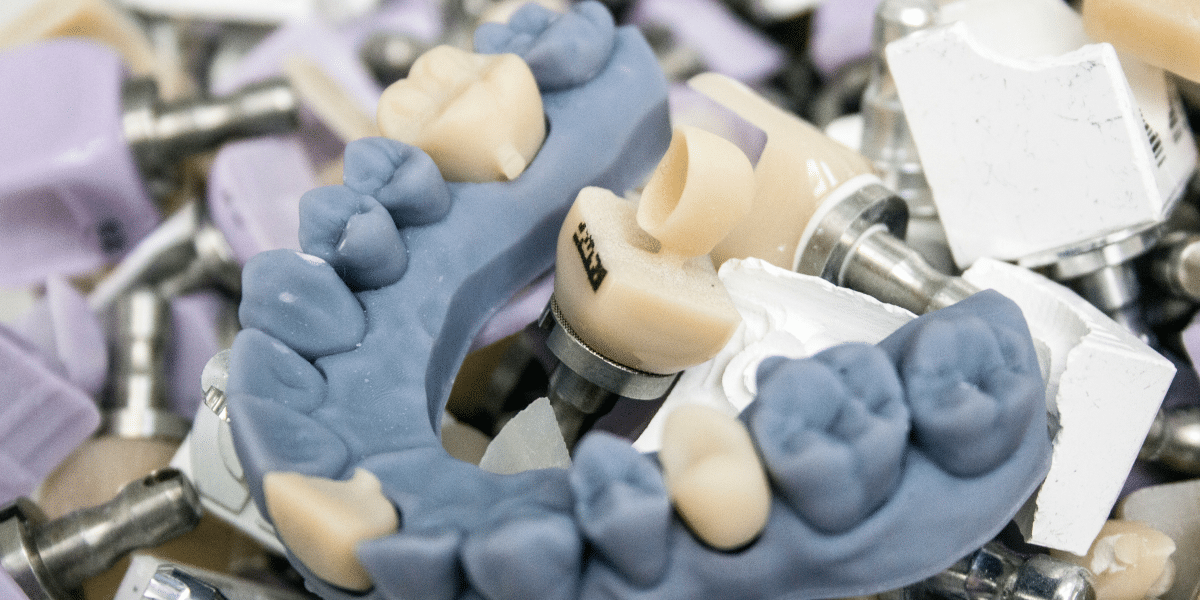Dental crowns are long-lasting solutions designed from materials that match your natural tooth color and translucency, blending seamlessly with your smile.
They also help restore damaged or broken teeth by evenly dispersing bite pressure, making eating comfortably without stressing neighboring teeth possible. Dental implants can help you achieve a beautiful and functional smile.
1. Strength
Dental crowns provide enhanced protection and restoration to damaged teeth by acting like a protective shell that shields them from further deterioration, such as decay, fractures, or issues related to trauma or poor oral hygiene. They can help stop further decay as well as any fractures.
Your natural tooth’s strength relies heavily on diet, lifestyle habits, and oral hygiene routines such as brushing and flossing daily and regular dental check-ups. Doing this will help them retain strength and structure for years.
Dental crowns can be created from various materials, each offering strengths and weaknesses. Ceramic crowns such as feldspathic porcelain and zirconia are known for their strength, durability, and ability to mimic the appearance of natural tooth enamel. They are also biocompatible, which can help support overall oral health. Ceramic crowns are often recommended for front teeth due to their aesthetic qualities, while metal crowns are sometimes preferred for back teeth because of their durability.
2. Durability
Crowns may be resilient, but they’re not indestructible. Your mouth, the type of material used, and your oral hygiene practices all affect how long your crowns last.
Cracked or broken teeth can benefit from crowns’ added strength. In addition, crowns help secure large fillings in place and improve the appearance of discolored or misshapen ones that are not repairable with root canal therapy.
Metal crowns are the strongest choice, as they can withstand biting and chewing forces without wearing down, yet their metallic color makes them less suitable for front teeth restoration. Porcelain or porcelain-fused-to-metal crowns offer a good compromise between durability and naturalness;
3. Aesthetics
Dental crowns can protect and enhance your teeth’ function and appearance. Custom-designed to match the shape and color of your natural tooth, dental crowns come in various materials like porcelain, ceramic, metal alloys, or combinations for easy fitment and placement.
Porcelain crowns offer the most natural-looking solution, featuring a translucent finish and stunning shades of white that won’t stain easily. Their durability also makes them easy to blend in seamlessly with natural teeth.
Zirconia core-only crowns feature an opaque hue and are then covered with standard transparent porcelain to achieve a more lifelike aesthetic. Ideal for out-of-sight molars or back teeth, zirconia crowns are strong yet durable; perfect for patients who engage in frequent jaw clenching/bruxism behaviors or who suffer from TMJ disorders such as TMD.
4. Comfort
A crown can help protect a weak tooth by providing extra support and reducing the risk of further damage. It may also help maintain the alignment of surrounding teeth, potentially preventing shifting that could affect your bite or overall oral health.
Dental crowns provide comfort to people with sensitive teeth. By protecting weaker ones from intense temperatures, which may help ease any associated discomfort, dental crowns can also protect teeth against acid erosion caused by grinding their teeth, particularly for people who engage in habits such as bulimia.
Crowns are designed to match your natural teeth & blend seamlessly into your smile. They may be made of ceramic porcelain fused with metal or metal alloy. Ceramic or porcelain crowns can be color-matched, while metal alloy crowns may last longer.
5. Pain Relief
Dental crowns provide a protective shield that safeguards weakened or damaged teeth against harmful bacteria and plaque that could otherwise lead to tooth decay. Crowns also strengthen cracked or broken teeth to restore their original appearance, strength, and functionality.
Toothache can often be traced back to poorly fitting crowns that don’t sit flush against underlying teeth. Over-the-counter medications like ibuprofen and acetaminophen may help alleviate pain; rinsing with salt water may reduce inflammation and relieve toothache symptoms.
Alternatively, a dentist may use a night guard to stop teeth grinding or clenching, which causes discomfort. If these steps don’t help, he or she may prescribe anti-anxiety medication, cold compresses, or, more seriously, anti-inflammatory medicine.
Disclaimer: The information provided in this article is intended for general informational purposes only and should not be considered as medical or dental advice. While dental crowns can offer protection and aesthetic benefits, individual results may vary based on factors such as oral hygiene, lifestyle habits, and the specific materials used. The durability and effectiveness of dental crowns depend on a variety of factors, including the condition of the tooth, the type of crown, and the patient’s overall dental health. Always consult with a qualified dentist to determine the best treatment options for your specific needs and circumstances.
Published by Jeremy S.



















